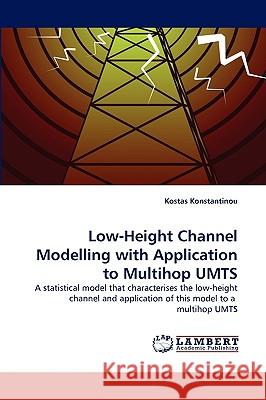Low-Height Channel Modelling with Application to Multihop Umts » książka
Low-Height Channel Modelling with Application to Multihop Umts
ISBN-13: 9783838353043 / Angielski / Miękka / 2010 / 232 str.
Applying the relaying concept to a Code Division Multiple Access (CDMA) mobile network is not a new idea, and many such systems employing relaying capabilities have been suggested. An obstacle to their evaluation with respect to capacity and coverage gains over the conventional non-relaying networks has been the inapplicability of the existent path loss models for low height terminal communications. Herein, empirical propagation models for relaying systems with low height terminals are proposed. The new models consist of line of sight and non-line-of-sight branches, and they take into account the effect of transmitter and receiver height, citing and environmental parameters. They are also complemented by shadowing and fast-fading distribution and correlation statistics. The measurement-based path loss, fading and shadowing models are employed in a dynamic system-level simulation. The simulation outcomes show transmit power savings and coverage and capacity gains in agreement with the expected analytical results, but dependent on the frequency scheme, relaying, antenna directivity gains and other assumed paremeters.











